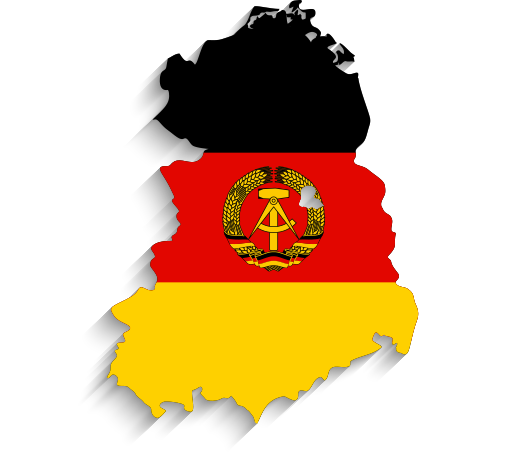(Grant Agreement n. 669194)
(Leipzig, 28/5/1926 - Berlin, 19/8/2010)
Stete Secretary - Ministry of Foreign Trade (1969-1976)Deputy Minister - Ministry of Foreign Trade (1976-1986)
Member - Extended "Small Circle" (1979-1989)

While the Minister of Foreign Trade, Horst Sölle, was a rather colorless person in the GDR’s Western Trade, State Secretary and later Deputy Minister Gerhard Beil executed a great deal of the ministerial day-to day business. He was a restless and permanent traveler to the West, who negotiated almost all treaties and secured the financing of the big deals he concluded. His Western counterparts regarded him as a though negotiator and attributed him great managerial skills. However, his massive engagement in increasing economic relations with the West on the best possible terms for the GDR always served the party line. Despite being in constant contact with the West and the fact that his ministry was most affected by the EEC’s trade policy towards the GDR in the 1970s, Beil, paradoxically never became an advocate for closer relations to the Common Market. In 1975, his ministry advocated “technical contacts” with the Commission, but in 1978 it opposed direct negotiations regarding steel and metallurgic exports. Despite showing some flexibility in his bilateral negotiations with the West, he always acted within the provisions imposed by the party. His contribution to overcome the severest crises of the East German economy by concluding favorable compensation deals, securing loans and negotiating complicated and delicate matters with his Western partners has so far been underestimated. Usually his proposals were accepted without any change by Günter Mittag an Erich Honecker.
|
Werner Jarowinsky was a longstanding economic functionary of the GDR. Formally, his area of responsibility as Secretary of the Central Committee included foreign trade, however, on the party-level the Economic Secretary, Günter Mittag, mo... |
|
Despite being in office for more than two decades, in economic relations to the West, Horst Sölle remained a rather colorless person. In the first few years after the diplomatic recognition of the GDR he paid a couple of state visits and ... |
|
Alexander Schalck-Golodkowski was the most enigmatic figure of the East German economic elite. As the founding father and head of the Commercial Coordination division (Bereich Kommerzielle Koordinierung or KoKo), he presided over a sector that... |
|
As Chairman of the East German State Planning Commission Gerhard Schürer was always part of the inner circle of the GDR’s economic elite. However, his power was limited and Honecker never promoted him to membership in the Politburo.... |
|
Günter Mittag was the economic mastermind of the Socialist Unity Party of Germany. Within the provisions set by Erich Honecker he executed control over the East German economy. He served as Secretary of the Central Committee for Economics... |
|
Comparable to the SED’s Secretary of the Central Committee for Trade, Supply and Foreign Trade Werner Jarowinsky, the head of the Department of Trade, Supply and Foreign Trade had hardly any actual influence on foreign trade and did not ... |
|
Appointed Foreign Minister soon after the diplomatic recognition by the West, Oskar Fischer became one of the main East German representatives abroad. While throughout the 1970s the heads of government and state, Willi Stoph and Erich Honecker... |
|
As Secretary General of the Socialist Unity Party of Germany Erich Honecker shaped the East German economic and foreign policy most. It was him who took the final decisions. By introducing and pursuing the concept of “Unity of Economic a... |
